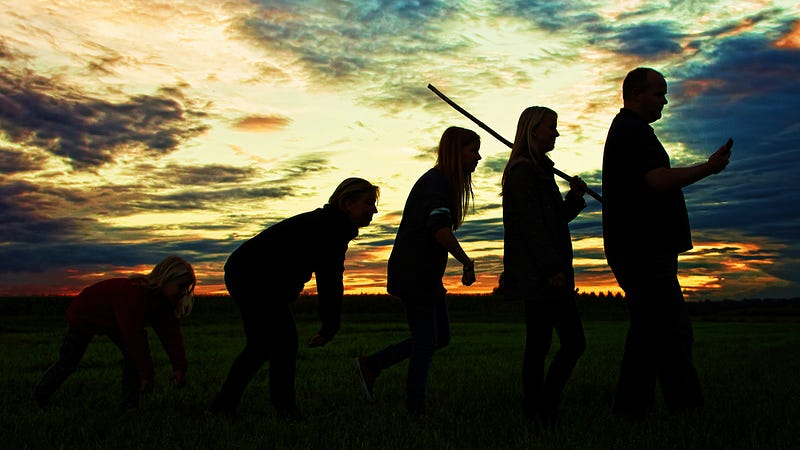The Interplay of Evolution and Chance in the Journey of Life
Written on
The Historical Perspective on Evolution
In ancient times, the concept of evolution was non-existent, with many believing in the idea of species remaining unchanged over time, known as fixism. This notion posited that the species we observe today have persisted through the ages without alteration. For centuries, this perspective dominated scientific thought.
In Ancient Greece, prominent philosophers such as Plato (427–347 BC) and Aristotle (384–322 BC) supported the idea of fixism. Aristotle proposed that living organisms arose from lifeless matter, transformed by an "active principle," leading to the concept known as Spontaneous Generation. In contrast, creationism, rooted in the biblical Book of Genesis, posits that a divine entity created all life forms in a singular act, endowing them with immutable traits and specific purposes.
The Emergence of Evolutionary Thought
Today, when we discuss evolution, the name that often comes to mind is that of Charles Darwin, a British naturalist. In 1859, he published the groundbreaking work "The Origin of Species," which ignited intense debate. Darwin proposed that species evolve through a process he termed "descent with modification," tracing all life back to a common ancestor. He introduced natural selection as the mechanism behind evolution, suggesting that organisms with advantageous traits are more likely to survive and reproduce, leading these traits to become more prevalent in subsequent generations.
Natural selection fosters adaptation, allowing populations to better integrate into their environments over time. This process relies on environmental factors and the presence of genetic variability within populations.
Neo-Darwinism and Modern Evolutionary Theory
Building upon Darwin’s foundation, neo-Darwinism incorporates additional mechanisms that influence evolution, such as mutation, gene recombination, and genetic drift. Mutations are crucial as they serve as the primary source of genetic variation. These random changes in an organism's genetic makeup are not always beneficial for adaptation.
However, a question arises: How can survival be attributed to the "survival of the fittest" when chance plays such a significant role? Sometimes, it appears that only the fortunate species endure.
Genetic drift, unlike natural selection, does not enhance genetic variability but can diminish it. This mechanism involves random fluctuations in allele frequencies, which means that traits passed to future generations are not necessarily the most advantageous for survival.
The Role of Luck in Evolution
Survival does not imply superiority in evolution; rather, it often results from mere luck. The absence of a definitive evolutionary peak suggests that we are fortunate to have been selected through a random process. In biological terms, evolution is primarily an adaptation to existing environmental conditions.
Consider the hypothetical scenarios: had an asteroid or solar flare been slightly more potent, or had it struck at a different moment, our existence could have been drastically altered. Similarly, variations in our solar system could have precluded life as we know it. Environmental catastrophes can result in random genetic selection, with phenomena like the bottleneck effect—where a significant reduction in population size occurs due to environmental pressures—and the founder effect, which arises when a small group colonizes a new area.
Luck undeniably influences both the existence and evolution of species, including our own. However, I contend that luck and evolution alone are insufficient to explain the existence of life; there must be additional factors at play, aspects of which remain beyond our current understanding.

The Dance of Evolution and Chance
In this captivating video titled "Noiz's Evolution of Get Lucky Dancing," we explore how luck intertwines with the evolutionary process through the lens of dance and movement.
The Role of Artistry in Evolution
In "Lucky Thirteen: A Dance Film Starring Maddie Ziegler & Narrated by Chloë Sevigny," we examine how creativity and chance influence the evolutionary narrative, bringing together art and science in an engaging presentation.